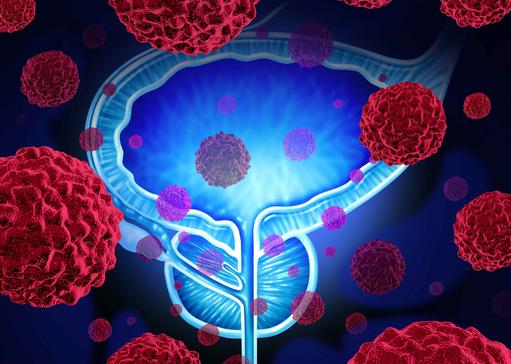-
Experts describe new prostate cancer study as the disease’s ‘Rosetta Stone’
-
Prostate cancer kills nearly 11,000 men each year in the UK alone
-
Men with untreatable prostate cancer could benefit from standard drugs
-
Study opens black box of genetics to treat previously untreatable cancer
-
Mediterranean diet lowers mortality risk for men with prostate cancer
A new UK-US cancer study could transform prostate cancer treatment, and give hope to sufferers whose cancers have become resistant to treatment. Experts’ hail the study as “incredibly exciting and ground breaking”. According to Professor Johann de Bono, of the Institute of Cancer Research, London, who led the British team, the study opens up a new era of treatment, in which men will be given drugs tailored to their tumours.
Cancer is lethal when it metastasises and becomes resistant to drugs. The study, published in the journal Cell in 2015, involved 150 men close to death whose prostate cancers had spread throughout their bodies, and were not responding to available drugs.
Prostate cancer’s ‘Rosetta Stone’
The research has opened up a black box in cancer genetics, and changes the way we think about and treat prostate cancer. Now that doctors have a map of which mutations to look for, they could search for them using a £200 test.
De Bono, extracted samples of the cancer from metastatic tumors, and analysed their DNA, which showed that 90% of the men carried genetic mutations in their tumors, which matched drugs already on the market. A third of the men studied had tumors suitable for treatment with new drugs called PARP inhibitors.
‘’We're describing this study as prostate cancer's Rosetta Stone because of the ability it gives us to decode the complexity of the disease, and to translate the results into personalised treatment plans for patients. What's hugely encouraging is that many of the key mutations we have identified are ones targeted by existing cancer drugs - meaning that we could be entering a new era of personalised cancer treatment," says de Bono.
According to de Bono, “We are changing how long these men are living. This gives me hope that I can make a difference for men dying of prostate cancer. There is still a lot of work to do. This is not a cure, but it is a huge step forward.”
Prostate cancer
In an earlier Commentary we discussed the dilemmas men face when they have been diagnosed with prostate cancer. Prostate cancer is the most common cancer in men, and each day in the UK alone 110 men are diagnosed with the disease. Cancer begins to grow in the prostate, a gland in the male reproductive system, and develops slowly. Although it can be cured if diagnosed early, there may be no signs that you have it for many years, and symptoms often only become apparent when your prostate is large enough to affect the urethra. Here cancer expert Professor Karol Sikora describes the symptoms of advanced prostate cancer:

Once prostate cancer begins to spread it becomes difficult to treat, and each year nearly 11,000 men die of the disease in the UK. Treatment options include watchful waiting, surgery, radiation, hormone therapy, chemotherapy, biological therapy and bisphosphonate therapy.
Mediterranean diet
According to research published in the journal Cancer Prevention Research, a Mediterranean diet rather than a Western diet may improve survivorship for men diagnosed with prostate cancer.
This is welcome news because there is a dearth of evidence to counsel men living with prostate cancer on how they can modify their lifestyle to lower the risk of mortality. The new study from Harvard’s Chan School of Public Health, investigated the diets of 926 men with prostate cancer for an average of 14 years after their diagnosis, and in 2015 published their findings, which suggest that people living with prostate cancer who ate a predominantly Western diet, high in red and processed meat, fatty dairy foods, and refined grains, were two-and-a-half times more likely to die from prostate cancer, and had a 67% increased risk of all-cause mortality, compared with participants who followed a Mediterranean diet, rich in vegetables, fruits, fish, whole grains, and healthy oils. In comparison, men who follow a Mediterranean diet had a 36% lower risk of all-cause mortality.
Lead author Meng Yang suggests treating the findings cautiously, "Given the scarcity of literature on the relationship between post-diagnostic diet and prostate cancer progression, and the small number of disease-specific deaths in the current study.”
Dietary supplements and vitamins
Researchers continue to look for foods (or substances in them) that can help lower prostate cancer risk. Scientists have found some substances in tomatoes (lycopenes) and soybeans (isoflavones) that might help prevent prostate cancer. Studies are now looking at the possible effects of these compounds more closely. Scientists are also trying to develop related compounds that are even more potent, and might be used as dietary supplements.
Takeaways
Some studies suggest that certain vitamin and mineral supplements (such as vitamin E and selenium) might lower prostate cancer risk. But a large study of this issue, called the Selenium and Vitamin E Cancer Prevention Trial (SELECT), found that neither vitamin E nor selenium supplements lowered prostate cancer risk after daily use for about five years. In fact, men taking the vitamin E supplements were later found to have a slightly higher risk of prostate cancer.
De Bono’s breakthrough in cancer genetics means that many men whose prostate cancer was thought untreatable could be given drugs that are already on hospital shelves. Some patients have already benefited, and are alive more than a year on, despite only having been given weeks to live.
|






